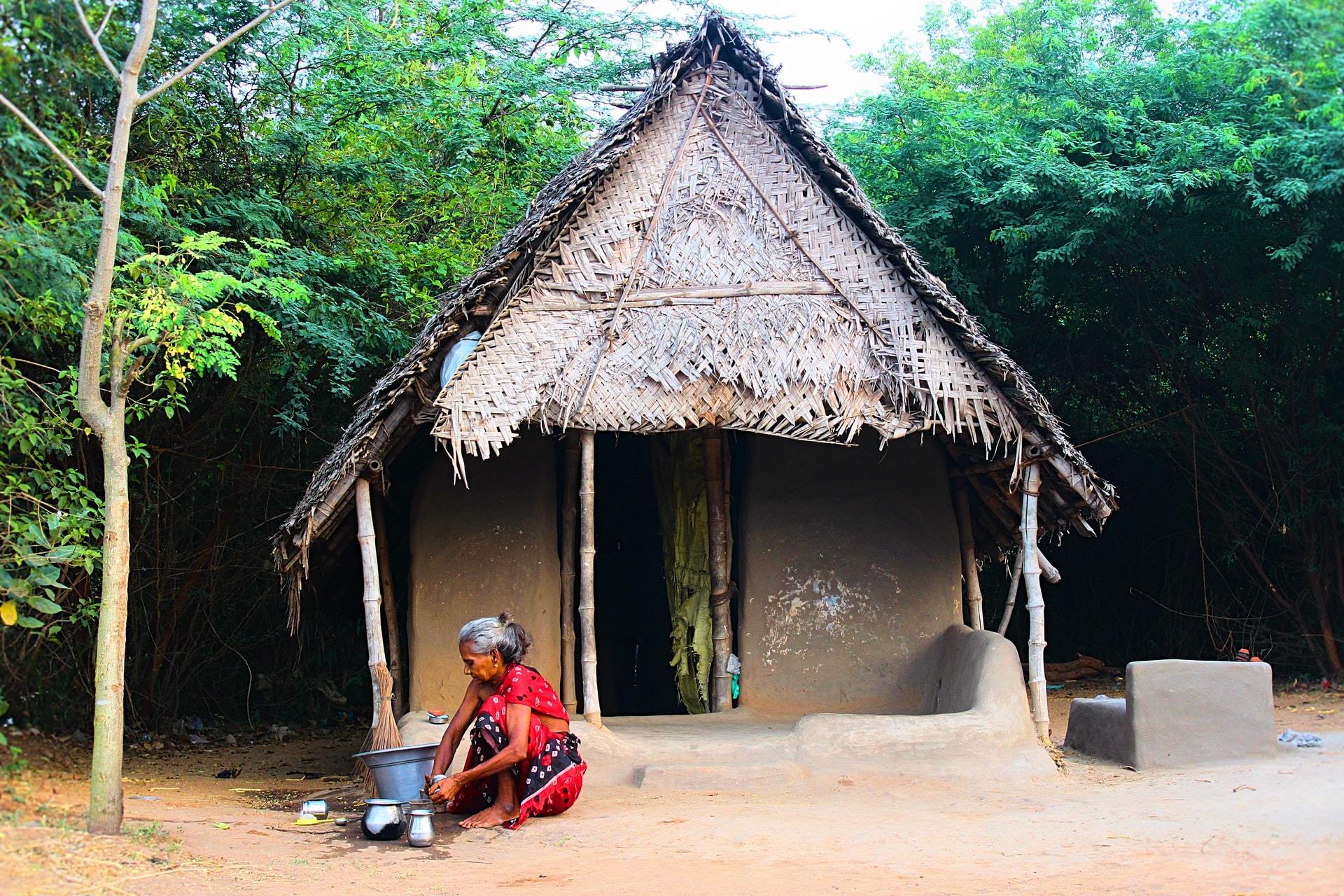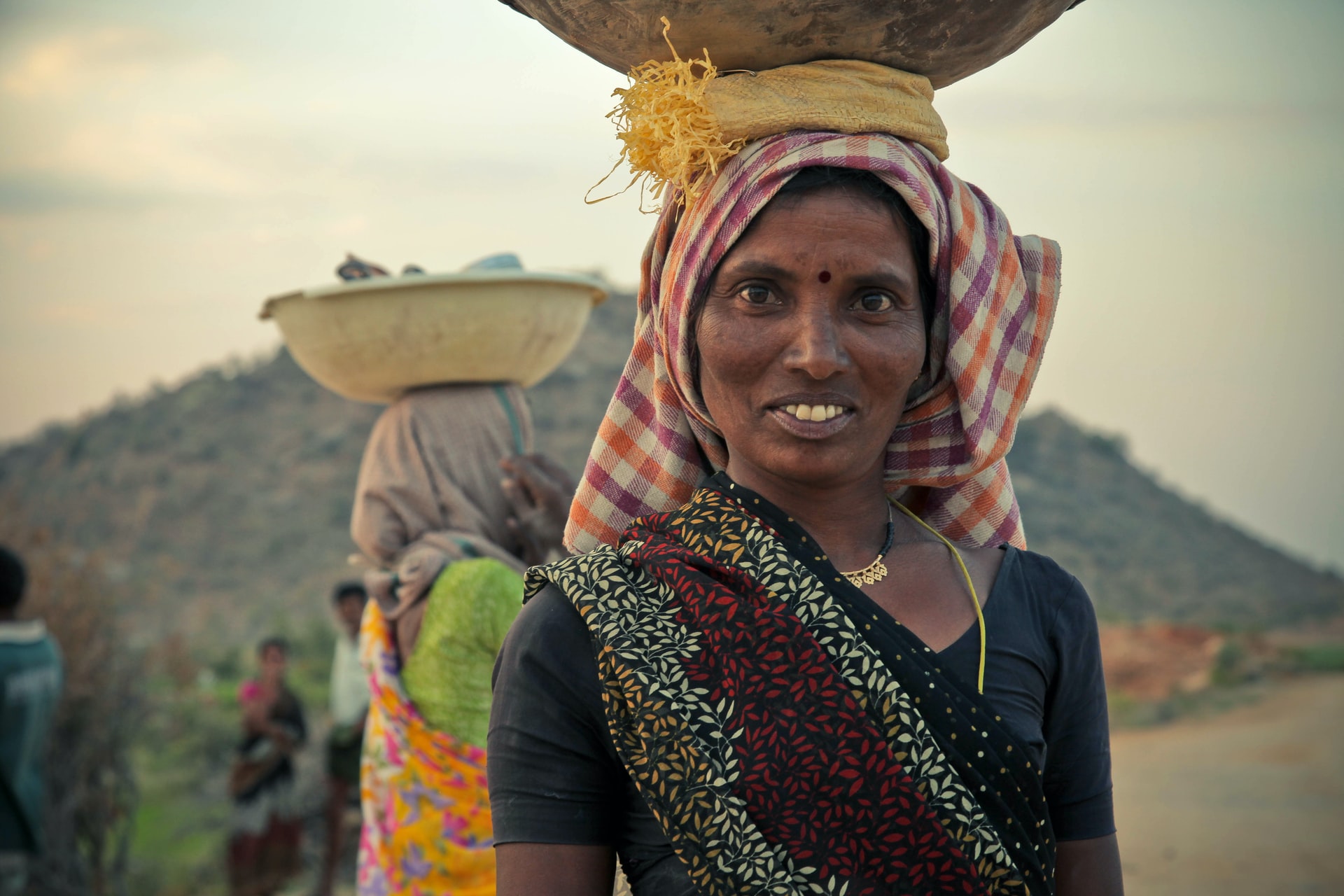Citizenship Amendment Act 2019 & National Register of Citizens and a general study on rising hysteria among people for CAA and NRC in India.
Indian politics is complex; not because of diversity of this nation but varied cognition on fundamental concept of diversity has made it complicated. Voice of nation reflects in the laws of Indian parliament and it is quite obvious that each law cannot be welcomed as expected always but we have democratic way of protest; burning the public properties, sabotage and hysteria among nation can never be accepted in any case.
Recent citizenship amendment act 2019 has created a sense of fear among largest minority of this nation but whenever anybody asked them about the actual implication of CAA on them- their logic and fear found to be subtle.
Following report is an attempt to understand NRC and CAA through the prism of various intellectual of the nation.
History is essential to shape our mind for present. Pakistan, Afghanistan, Bangladesh, Myanmar were once the part of this great civilization – Indus. Muhammad bin Qasim-al-Thaqafi first attack India in 8th century under Islamic flag & he conquered Sindh and Multan by killing King Dahir.
He first inflicted Jajiya Tax on non-believers of Islam. It is very hard to believe that in 980 AD, King Jaipala ruled the present Afghanistan & Pakistan but consequently it was Battle of Peshawar between Ghaznavid and Hindu Shahi army in which Jaipala was defeated and captured, he later immolate himself in the funeral pyre.
That battle laid the foundation of Ghaznavid Empire in Indian subcontinent. People of the great civilization were called as Indian – a word taken from Indus; later this term was converted to Hindu.
Now we have three prospects to understand the term Hindu and simultaneously taking each prospect under inference; whole politics and Idea of this nation can change.
- Hindu as a group of people of Indus Valley Civilization
- Hindu as a religion
- Hindu as a way of life as suggested by many scholars
If Hindu is a term for group of people of this civilization – than once the single nation ‘Pakistan, Afghanistan, Bangladesh’ and people of all religion of this area are nevertheless Hindu; and there is no point of debate on the statement of Sh. Mohan Bhagwat, RSS Chief in India.
But if Hindu is a religion than we have Dalits movements in the country taking their persecution under heinous crimes by caste system in concern always. The fear which Harsh Mander wrote for CAA and NRC.
“This is a fear tempest that threatens to engulf India in the coming months, one which will destroy in its wake this country as it was imagined and promised.”
It seems logical.
If we sincerely believe Hindu as a way of life – than what is the code is a big question mark? Literally things are complicated and we need intellectual debate on the topic and seriously NRC and CAA has provided us a desirable platform.
At the stroke of midnight on December 9, 2019- Indian parliament passed the historic Citizenship Amendment Act 2019 and under the legislation:
“There is special provision to grant citizenship to minority groups like Hindus, Jains, Sikhs, Buddhists, Parsis and Christians who have come to India from Pakistan, Afghanistan and Bangladesh due to religious persecution.”
Soon after the bill is passed, the nation has witnessed hardcore politics across the nation demanding the abolition of this act. Indeed question of Sharad Yadav is important when he wrote-
“For the present NDA government, unemployment touching a 45 year high, GDP growth slowing down to 4.5%, inflation touching double digit, increasing farmers distress, deteriorating law and order situation, an increase in mob lynching in the name of cow protection”.
In such conditions, why government prioritise CAA?
Apart from this question, there are many issues raised against the citizenship amendment act 2019. These are some issues:
- Citizenship Amendment Act 2019 violates articles 14 of Indian Constitution.
- When religious persecution is deemed to qualify migrants for accelerated citizenship, then why Rohingyas from Myanmar, Uyghurs from China, Ahmediyas and Shias from Pakistan and Bangladesh were excluded?
- Persecution can be linguistic, political, and cultural and casteist – Why ‘Citizenship Amendment Act 2019’ did not have any provisions on such persecutions?
- Why citizenship amendment act 2019 did not accept Assam Accord cut off date – March 25, 1971?
- This act is anti-constitutional and attacks on secular fabric of this nation.
If it was anti-constitutional and violates Article 14 of Indian Constitution, then undoubtedly Hon’ble Supreme Court of India did not dismiss petitions against citizenship amendment act 2019.
Article 11 of Indian Constitution reveals that Indian parliament is empowered to make any laws related to the acquisition or termination of the citizenship, and all other matters related to citizenship.
Now the protest is on with an accusation that the law is against the secular fabric of the nation and there is a suspicion on government intention also by excluding only Muslim for claiming citizenship which would later affect Indian Muslims with the advent of nationwide NRC and NPR.
Muslim league fought with a two nation theory and finally on 14th August 1947, An Islamic Republic of Pakistan was born. There was an East Pakistan and West Pakistan, but history witnessed that linguistic and cultural war among Muslims of East Pakistan and West Pakistan laid foundation of Mukti Vahini and Bangladesh was born after an unprecedented genocide and 1971 war in which India played an important role.
These two nations originally separated from India are Islamic republic and surprisingly minority population in Pakistan has decreased from 23% in 1947 to 3.7% in 2011 while minority population in Bangladesh had decreased from 22% in 1947 to 7% in 2011. What went wrong there?
Assam has been always a flood-gates for Bangladesh Hindus as well as Bangladesh Muslims since a long time and such illegal immigration caused a massive genocide at Assam and Than Prime minister Sh. Rajiv Gandhi conceptualize the Assam Accord which was to grant citizenship to those migrants who entered India before March 25, 1971.
But it was not implemented as expected, creating displeasure in native people of Assam & their fear seems logical because language and culture of indigenous people of Assam will be wiped out and they will be reduced to second class citizen in their homeland.
National Register of Citizen ‘NRC’ tried to resolve their discontent by identifying 1.9 million illegal immigrants mostly Hindus of Bangladesh. Now what to do with these immigrants?
- To send them all back to the nation they flee fearing religious persecution or some other sort of persecutions.
- To put them all in refugee camps on public expenditure and keep the problem unresolved.
- To grant them all citizenship of India and made their life accountable for dignity and respect.
Now it can be assumed that government planned to introduce citizenship amendment bill in the lower house of Indian parliament to grant citizenship of all immigrants excluding Muslims to resolve such a gigantic problem of refugee and illegal migration.
Indeed this was not the first time such a bill was placed before the house; former Indian Prime Minister Sh. Manmohan Singh in 2003 raised voice to grant citizenship for non-Muslim illegal migrants and in the year 1943, Congress too wanted citizenship for non Muslim.
Exclusion of Muslims can be understood by an argument that formation of Pakistan and Bangladesh was purely on religious bases and concurrently these nations are Islamic republic itself & it was only non-Muslims who faced religious persecution- than why India took burden of illegal Muslims immigrants by granting them citizenship.
As soon as Citizenship Amendment Bill was passed, there was an outburst in north-east India especially in Assam. They considered Citizenship Amendment Bill as back stabbing because it is possible that out of 1.9 million illegal migrants – majority of Bangladesh Hindu would get Indian Citizenship; and there problem will remain unresolved.
Likewise in the upcoming 2021 assembly elections of West Bengal – if the ruling party wants edge over Trinamool Congress, It must ensure citizenship to Bangladesh Hindus. This act can enhance BJP base in Assam, Tripura and West Bengal.
So it can be presumed that major act of violence’s reported in West Bengal are political in nature. Act of Violence in North East can also be presumed a clash of culture, language and survival of Assamese Identity ahead of Citizenship Amendment Bill 2019. But whatsoever is happening inside the university campuses and various Indian cities need a close look.
When Citizenship Amendment Bill 2019 is tackling non-Indian & illegal immigrants in the boundary of this nation, suppose Muslims of Pakistan, Afghanistan and Bangladesh – why Indian Muslim are scared and how denying those illegal immigrant citizenship attacks on the character of Indian constitution?
Preamble of Indian Constitution says, “We the people of India” – but those illegal immigrants are not Indian; and Citizenship Amendment Bill 2019 is tackling them only. Hence such unrest among the people of India cannot be understood by many scholars.
There is a fear of nationwide implementation of NRC which can target Muslims; fearing many Muslims can be declared illegal citizens of India. Indeed government of India denied plan to implement NRC in future but by still keeping suspicion intact – can NRC really a danger for Indian Muslims?
NRC was first prepared in 1951, and the current exercise is an update only. The final NRC will include all those people who were in 1951 NRC, and their descendants.
It will also include all those whose names were in electoral rolls up to March 24, 1971. It should also be noted that anyone could be citizen of India if one of the parent was Indian and the other not an illegal migrant, defined as one who has entered or stayed in India without legal authorisation.
Now taking prospects of Indian Muslims in view, how many people can be punished under the above norms? Indian Muslims are active in electoral politics in India and majority of them have Election Photo Identity Card ‘EPIC’ and they are also an important asset for this country.
Nobody is denying them their right as respected citizen of India. If still anyone has real fear, he should address his fear; with appropriate logic and facts.
Another point of concern is an argument about Citizenship Amendment Bill 2019 that it is an attack on secular fabric of India and Indian Constitution. Do we really know that in the first published version of Indian constitution and its preamble has no term ‘Secular’?
It was introduced into the preamble of Indian constitution with the 42th amendment of the constitution enacted in 1976. Do we ever try to understand why Dr. B.R. Ambedkar, the chief architect of Indian constitution did not include this term?
So all those people who chant that they believe in the Indian constitution by Ambedkar and they will fight to protect the secular fabric of this nation – should know the facts first.
We have an example of noted scholar and a notable voice of Dalits, Jogendra Nath Mandal, after 1947 he became a member of constituent assembly and then the highest ranking Hindu minister in Pakistan.
He resigned from his post and in his resignation; he highlighted the plight of Hindu minorities, their forced conversions and suppression and later he fled to India. When he fled, Nehru-Liaquat agreement was already signed on April 8, 1950 and all knew that agreement was to protect Hindu Minorities in Pakistan but still a Hindu minister of Pakistan fled to India clearly indicate the failure of the pact.
How many Indian Muslims and Dalits have guts to speak against that religious persecution of J.N. Mandal by Islamic forces? Likewise in the pre- article 370 era of Kashmir witnessed the expulsion of Kashmiri Hindus from the valley.
Do we have any statement from secular intellectual lobby of India on brutal massacre of Kashmiri Hindus and their expulsion from the valley? How an ordinary Hindu would feel on such incidents?
Through print media, electronic media and social messaging portals, Citizenship Amendment Bill 2019 and National Register of Citizens are the most trending topics but it is also a truth that there is plenty of misconception and intellectual debris is floating which is creating havoc among us.
There are some sensitive issues which need to be addressed with proper methodologies.
- There is an Islamic phobia across the globe; India is also not an exception.
- We heard about Ghazwa-e-hind, jehad and furious Islamic preaching to attack all non believers of Islam is also a truth.
- Among the Indian Muslims also, we can observe Saudi influence of Islam. There are so many Muslims scholars in India who admire Taimur, Abdali, Ghaznavi and other Islamic invaders; isn’t it dangerous for being a citizen of Indus.
- We have given Sufism to the world but that humanitarian Islam is not so viable in India, Pakistan and Afghanistan. Why?
This is also a social responsibility of an Indian Muslims to become answerable to these questions. Intellectual and government lobby must aware people the meaning of being an Indian historically and culturally.
All the citizens nevertheless of any religious identity must attach to the very root of this nation. Just law sometimes does not suffice; we must counter illegal entry inside the Indian borders by making fencing and security strict and it should be under continuous surveillance.
“The task force had also recommended that the work of border-guarding forces must be scrutinized closely to ensure that illegal migration is reduced to the minimum”.
Madhav Godbole,
Inferential Studies
- The Rising Strom by Harsh Mander
- Who is a citizen by Manash Firaq Bhattacharjee
- CAB or Assam ka Pench by Subhir Bhaumik
- Deshhit mein CAB by Rajeev Chandershekhar
- A promise kept, a mandate betrayed by Arupa Kalita Patangia
- Strengthening Indian Values by Arjun Ram Meghwal
- India’s soul is wounded by P. Chidambaram
- Politics after CAB by Suhas Palshikar
- Refuge to Citizen by Arjun Ram Meghwal
- A constitutional Obligation by Hitesh Jain
- Addressing a partition left over by Bhupender yadav
- The way we move by S Irudaya Rajan and H Aokkiaraj
- A time to Unite by Sharad Yadav
- Bad in law, poor in history by Atul Nanda
- Dalitality: Thank you PM Modi for uniting us against CAA by Waman Meshram
- Right question, wrong answer by Madhav Godbole








